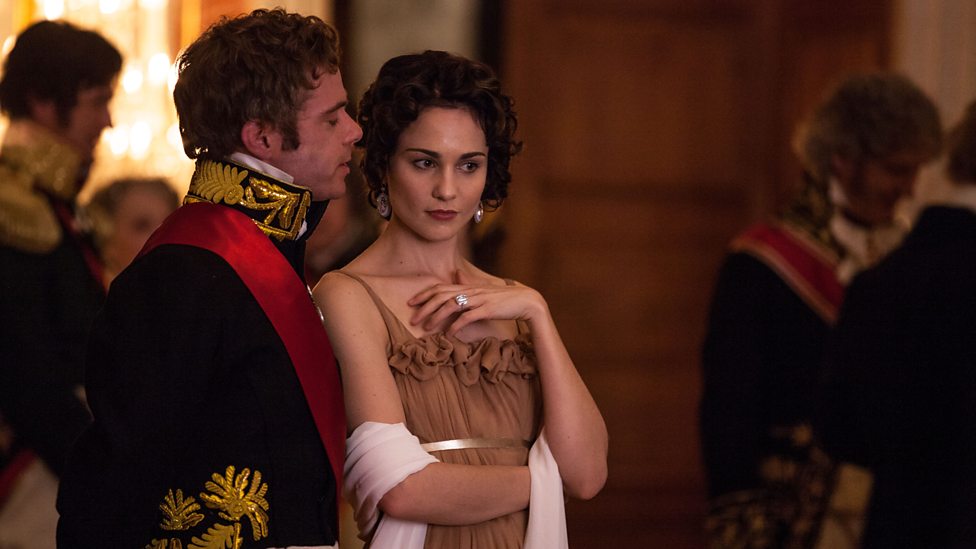Tuesday
A couple of years ago Darien, my social media savvy son, introduced me to Twitter. Since then, I have concluded that, when it comes to important matters like today’s “Super Tuesday” primaries, Twitter can operate like the great 18th and 19th century salons. Commentators gather (virtually) to exchange observations, with certain of them receiving plaudits for their cleverly delivered snark. Twitter’s 140-character limit is a spur to their creativity, just as, say, the tight haiku form is a spur to evocative poetry.
The Russian ambassador Bilibin from War and Peace, assigned to Vienna, would have excelled at Twitter. Consider the following description:
Bilibin liked conversation, as he liked work, only when it could be made elegantly witty. In society he always awaited an opportunity to say something striking and took part in a conversation only when that was possible. His conversation was always sprinkled with wittily original, finished phrases of general interest. These sayings were prepared in the inner laboratory of his mind in a portable form as if intentionally, so that in significant society people might carry them from drawing room to drawing room. And, in fact, Bilibin’s witticisms were hawked about in the Viennese drawing rooms and often had an influence on matters considered important.
Today, finished phrases are retweeted–that’s our version of being carried from drawing room to drawing room–but otherwise the process is the same. And like Bilibin, some tweeters appear to be more interested in their wit than in the actual events. At the same time that Bilibin is packing to flee Vienna, he is imagining ways to turn the French attack into salon fodder.
For example, note the scene where he is describing how the French tricked the Austrians into not blowing up an important bridge into the city. While they are telling the officer in charge that the war is over and that Napoleon wants to see him, their troops creep onto the bridge and throw the explosives into the water. He shifts from Russian to French to deliver his 19th century tweet:
“At length appears the lieutenant general, our dear Prince Auersperg von Mautern himself. ‘Dearest foe! Flower of the Austrian army, hero of the Turkish wars Hostilities are ended, we can shake one another’s hand…. The Emperor Napoleon burns with impatience to make Prince Auersperg’s acquaintance.’ In a word, those gentlemen, Gascons indeed, so bewildered him with fine words, and he is so flattered by his rapidly established intimacy with the French marshals, and so dazzled by the sight of Murat’s mantle and ostrich plumes, qu’il n’y voit que du feu, et oublie celui qu’il devait faire feu sur l’ennemi!” [“that he sees nothing but their fire and forgets that he is supposed to fire on the enemy”]. In spite of the animation of his speech, Bilibin did not forget to pause after this mot to give time for its due appreciation.
When Prince Andrei wonders whether treachery has been involved, Bilibin replies that it is something else. The same Austrian pride that led to General Mack’s defeat at Ulm has led to the capture of Vienna:
“Not that either. That puts the court in too bad a light,” replied Bilibin. “It’s not treachery nor rascality nor stupidity: it is just as at Ulm… it is…”—he seemed to be trying to find the right expression. “C’est… c’est du Mack. Nous sommes mackés” [It is… it is a bit of Mack. We are Macked],” he concluded, feeling that he had produced a good epigram, a fresh one that would be repeated. His hitherto puckered brow became smooth as a sign of pleasure, and with a slight smile he began to examine his nails.
Shortly thereafter, he and Prince Andrei are fleeing the city.
Bilibin is still delivering aphorisms when he returns to the St. Petersburg drawing rooms. Since these members of Helene Kuragin’s salon are generally pro-French and skeptical of the nationalist fervor that the Russian emperor is drumming up in Moscow, the witticisms are at the Czar’s expense:
In Helene’s circle the war in general was regarded as a series of formal demonstrations which would very soon end in peace, and the view prevailed expressed by Bilibin—who now in Petersburg was quite at home in Helene’s house, which every clever man was obliged to visit—that not by gunpowder but by those who invented it would matters be settled. In that circle the Moscow enthusiasm—news of which had reached Petersburg simultaneously with the Emperor’s return—was ridiculed sarcastically and very cleverly, though with much caution.
Of course, Bilibin proves to be wrong. Once Napoleon invades, their wit subsides and they become patriots. Like snarky tweeters after 9-11.
Here’s one more example of wit used to impress a salon audience. Bilibin tells how the Russian Field Marshal Wittgenstein subtly shames their allies the Austrians with a message that he himself wrote:
Bilibin was talking about the Austrians: having wrinkled up his face, he was evidently preparing to smooth it out again and utter one of his mots.
“I think it is delightful,” he said, referring to a diplomatic note that had been sent to Vienna with some Austrian banners captured from the French by Wittgenstein, “the hero of Petropol” as he was then called in Petersburg.
“What? What’s that?” asked Anna Pavlovna, securing silence for the mot, which she had heard before.
And Bilibin repeated the actual words of the diplomatic dispatch, which he had himself composed.
“The Czar returns these Austrian banners,” said Bilibin, “friendly banners gone astray and found on a wrong path,” and his brow became smooth again.
Bilibin is Twitter before there was Twitter.


